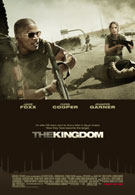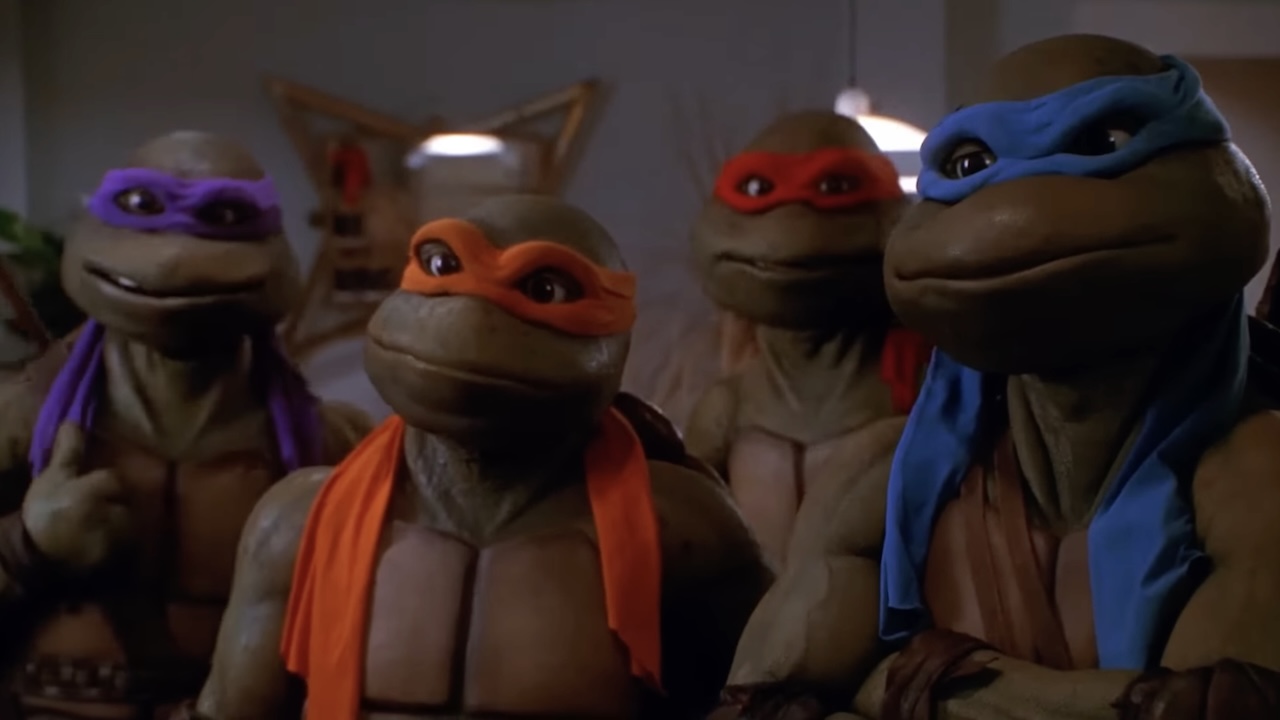The Kingdom is one of many movies in the ever growing “boy the Middle East sucks” genre that’s taken over theaters since it became clear to most of the country that the war on terror isn’t going to be easily won. But director Peter Berg’s film is more than just another face in the crowd. It’s by far the best of that depressing, sand-soaked group; mixing action and intentionally obvious political relevance together in a movie that’s part police procedural, part military action, and all smarts.
It starts with an over the opening credits recap of the Middle East’s history, and Saudi Arabia’s in particular. This could have been a boring recitation of historical facts, but Berg sets it to intense, action movie music and uses artistic, special effects driven animation to dole it out. As a result, a bunch of boring facts turns out to be the perfect introduction to the film, setting the stage not only for what’s about to happen in the movie but for what’s happening in the world right now. It instantly grounds the movie in reality, and when those facts are followed by a modern-day attack on a heavily guarded American housing compound in Saudi Arabia, you know this isn’t an episode of 24, this movie is real and the brutal terrorist attack you’ve just witnessed is something that could happen tomorrow, or might even be happening right now.
From then, the movie takes on frighteningly real dimensions. It’s as if you’re watching a film about an event that has actually happened, rather than a fictional creation about something that could. Whether or not the terrorist attack in The Kingdom is real becomes irrelevant, since you know you’re watching a movie about the realities of the Middle East situation, regardless of whether the film uses a fictional premise to illustrate it. The only thing I can think of to equate it to is Paul Greengrass’s brilliant September 11th recreation United 93, except instead of following tragically doomed passengers we follow an FBI team trying to hunt down the types of terrorists responsible for attacks like the one those brave victims suffered.
After the attack, the movie zeroes in on a team of FBI investigators lead by Jamie Foxx as Agent Ron Fleury. Because of the touchy situation in Saudi, the United States is only allowed to send in four agents in to figure out what happened. Foxx and his team arrive, are paired with a group of Saudi cops, given five days, and instantly barred from doing anything useful out of the Saudi government’s fear for their safety. They’ve stepped off the plane and into a world where nearly everyone wants them dead, and there’s not a single second in the movie where Berg allows you to forget that.
One of the few people in the country who doesn’t want them dead is Col. Al-Ghazi, a dedicated, high-ranking police official assigned to protect them. He’s played by mostly unknown actor Ashraf Barhom as a man dedicated to justice. Politics mean nothing to him, his life is devoted to the single-minded pursuit of punishing the kinds of people who would willingly murder innocent women and children. Fleury senses he’s a man that can be trusted and the real story of the film is the friendship that builds between them as they struggle to do their jobs. Ashraf’s performance as Al-Ghazi is nothing short of brilliant, he creates a character both sympathetic and dangerous, becoming a much needed face for more moderate Saudi people. The film’s worth seeing just for him, and he completely overshadows the otherwise solid performances of veteran actors like Jamie Foxx, Jennifer Garner, Jason Bateman, and Chris Cooper. Keep an eye out for Ashraf’s name when it comes time for Best Supporting Oscars.
The Kingdom is gripping, intense, and ultimately utterly depressing. That makes sense, since that seems to sum up the current, modern political situation we’re mired in. Berg takes us straight into the heart of the Middle East problem and though the good guys may win the smaller battles in his movie the film builds so much complication around them that it’s clear there’s no real victory here or anywhere. Like all movies about the Middle East, The Kingdom is ultimately hopeless. That’s as it should be, since the reality of the region’s situation is that nobody has any answers. The action is intense and the performances are brilliant, but whether or not Fleury gets his man in the end doesn’t matter; the important thing is that by the time you leave the theater you’ll feel as if you’ve been there with them and maybe, just maybe have some idea of what we’re in for over there. It’s not pretty.
Your Daily Blend of Entertainment News


